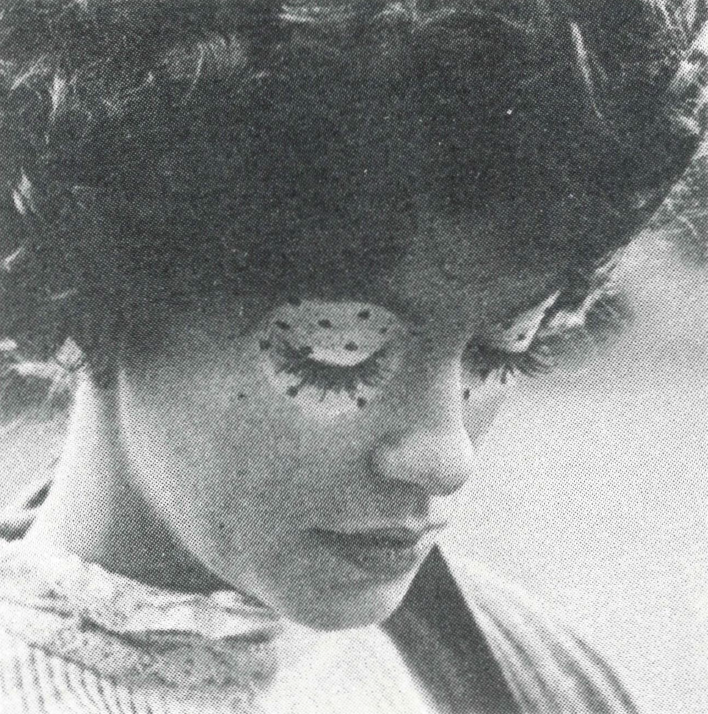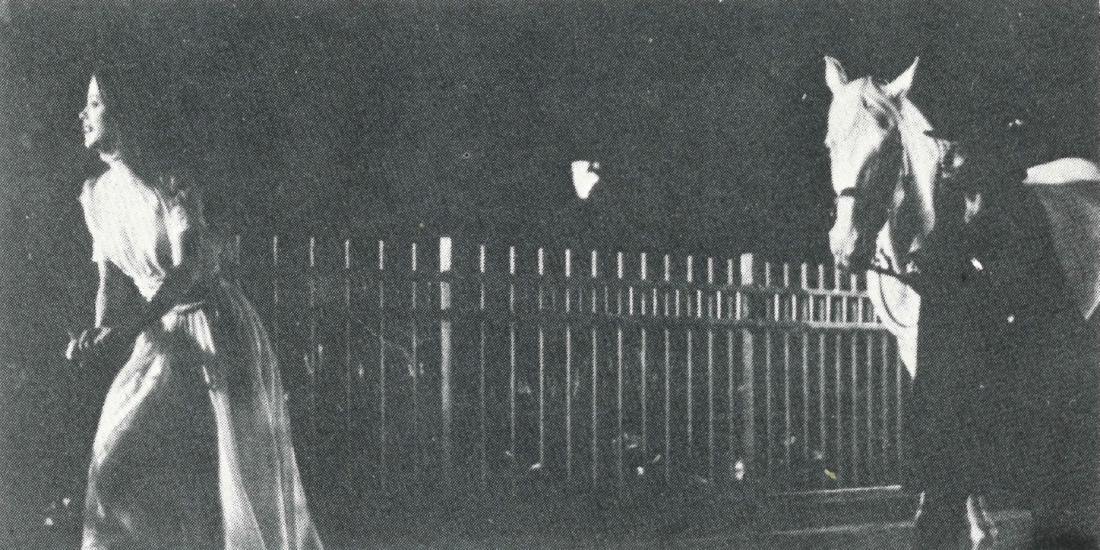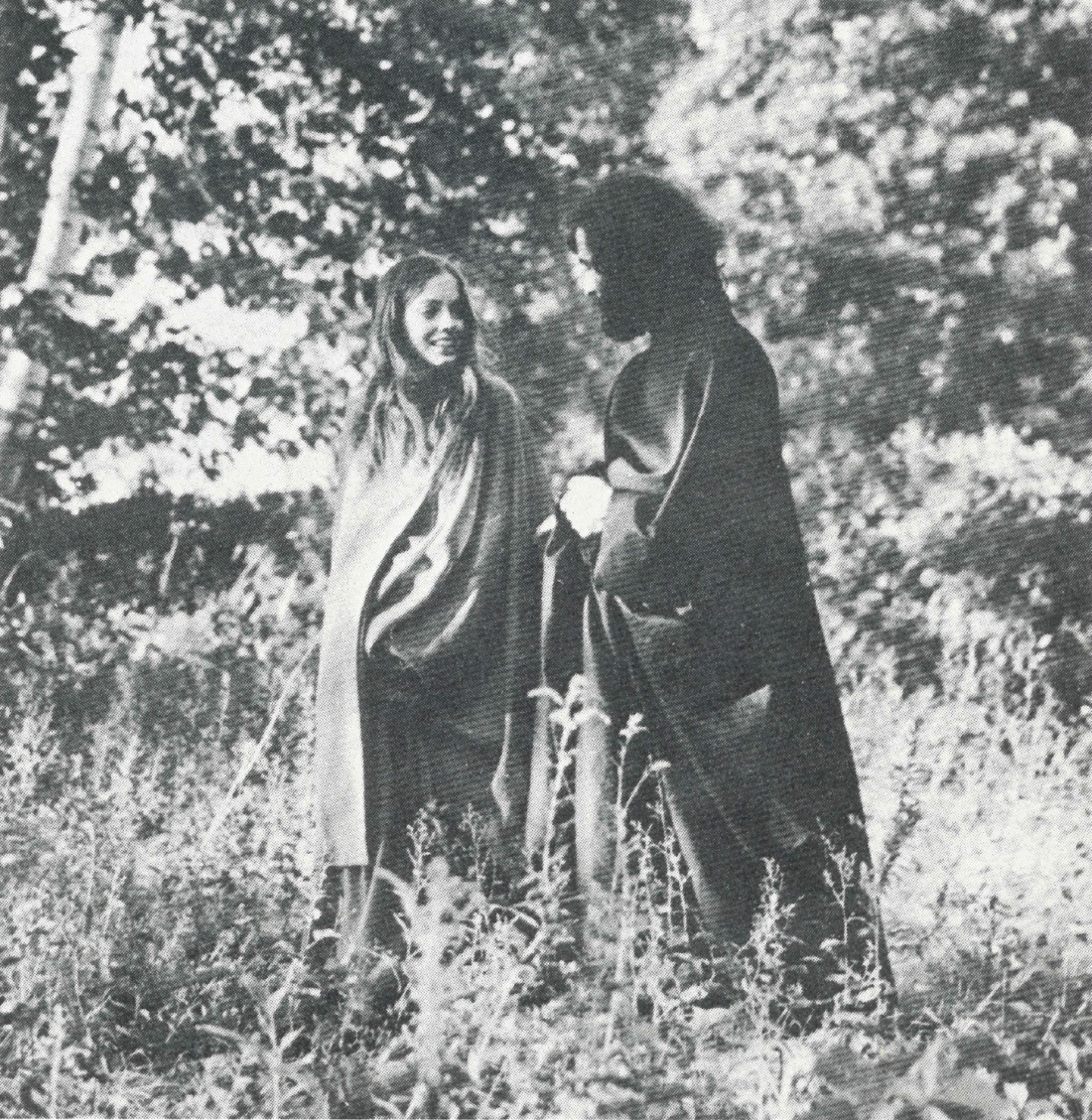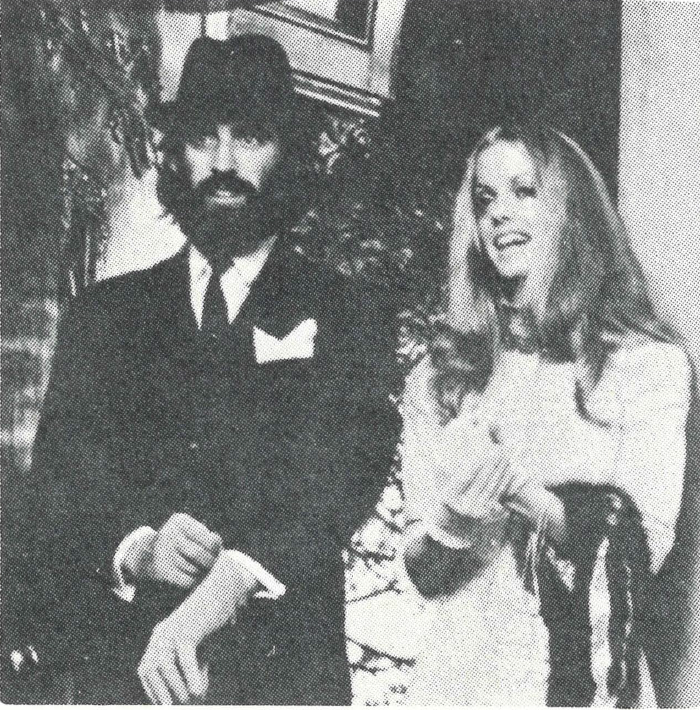Eliza’s Horoscope: Still-Born
My condolences to Gordon Sheppard, former CBC documentarist, who has spent almost ten years conceiving, filming, editing, and promoting his first feature film — Eliza’s Horoscope. It is my sad duty to report that the film, after all this foreplay, gestation, and labor, was stillborn.
Eliza’s Horoscope is “a Canadian film.” (That’s why no one has seen it, claims Sheppard, and that’s why it deserves some comment — although I feel a bit like a ghoulish coroner delivering an unwelcome autopsy report.) Sheppard is a true-blue Canuck; he financed the film through Canadian investors; and he shot it in Montreal. (For quibblers: it was edited and dubbed in Los Angeles, and the crew and cast are international — there was a French cinematographer and among others, Lila Kedrova, the oscar-winning Greek actress, has a major role.) It’s also about a girl from Quebec and a half-breed and a member of “The Band.” (Bachman Turner Overdrive and an Eskimo might have been better?) Despite this, it’s about as “Canadian” as a Fellini-film — which it obviously would much rather be.
The Eliza of the title is a pregnant (I think; there is much that is suggested but unexplained in the flashbacks in this film) teenage girl who leaves the farm in St. Therese, Québec and journeys to Montreal to find herself a husband. She stumbles into a squalid boarding-house inhabited by rejects from Fellini Satyricon, has her horoscope drawn by an ancient oriental woman (blind?), shares a room with a fifty-ish religious prostitute, and gets involved with several strange men who vaguely conform to her astrological chart (the fanatic half-breed who wants to blow up a bridge, an impotent doctor, and a sybaritic rock musician who takes her to a ritualistic orgy.)

Courtesy of Film Festival Bureau, Department of the Secretary of State, Ottawa, Canada.
This kind of material can be handled in several ways: the naive girl lost in the corrupt city is a standard element in both serious and sentimental literature; it is also an easy formula for pornography; and Terry Southern gave it a comically grotesque twist in Candy. Gordon Sheppard evidently didn’t know precisely what to make of it. At times it looks as if he wanted it to be a serious study; at other times it looks like an exploitation film (skin flick); sometimes I think he even meant it to be funny. Mostly it looks like he just wanted to make a movie — a hip and freaky, classy and relevant ART film.
Eliza’s Horoscope is an ambitious and perhaps even honorable attempt. But it’s misguided. For the story and its presentation don’t mesh. The story is too simpleminded, undramatic, and unfelt to stand up to its careful, “arty” techniques. There is almost nothing to involve the audience — to get the audience through the surface of the film. It’s like watching a foreign language puppet show reflected in somebody’s polarized sunglasses: it’s fascinating for a while but finally boring.
There is a lesson to be drawn from this. In fact, there are several. So I’ll doff my coroner’s robes in favor of academic garb.
Lesson No. 1: Tender-loving care is not enough to make a good movie.
For Sheppard Eliza’s Horoscope was obviously a personal labour of love. He took care to make sure that the movie didn’t look like an amateur production — as so many low-budget, Canadian, or beginner’s films do. This is a film with “production values” — generally good acting, cinematography, editing, dubbing, and even advertising. But these are not enough.

Courtesy of Film Festival Bureau, Department of the Secretary of State, Ottawa, Canada.
Lesson No. 2: Timing is often essential for the success of a movie.
There is something dated, passé, about this film. It probably should have been a “quickie” so that it could cash in on the trends popular when Sheppard first began the project (1968). As a “quickie” it might not have looked so discordantly polished and arty. It might have been a Canadian Easy-Rider or The Trip — scruffy, rough-edged, and faddish, but a moneymaker.
Lesson No. 3: Past expertise is no assurance of success.
Gordon Sheppard is an award-winning TV director and producer. His experience is in documentary filmmaking, however. And it gets in his way in Eliza’s Horoscope. At several strategic points Sheppard is content to linger too much on people and places. Rather than an involving and dynamic camera, it is passive and static. We get some beautifully arranged shots of Montreal and a ship in the seaway, and we get even more interesting and intimate shots of Rose Quong as the 90 year old oriental mystic and of an old native woman. But they are not integrated. They don’t do anything.
Lesson No. 4: Story is the most important element in a film.
Eliza’s Horoscope has no real development, depth, or complication. Part of the problem seems to stem from the fact that Sheppard could not connect or sympathize with the plight of his main character. Eliza (and all the other characters for that matter) are all seen from the outside. They are all mechanical characters pushed into contact with other two-dimensional characters. They aren’t believable to the audience because they don’t seem to matter to the director. What seems to matter more is cinematic weirdness, not motivation or realism.

Courtesy of Film Festival Bureau, Department of the Secretary of State, Ottawa, Canada.
Lesson No. 5: Weirdness is no substitute for imagination.
Halfway (at best) through this film the guy next to me leaned over and said: “Whattya bet Eliza meets another weirdo?” Sure enough, she did. And she kept doing it. Maybe what Sheppard should have done is to have introduced a normal person into the action at this halfway point. But this would have indicated a sense of comic timing or a certain wit or detachment from the project — which the writer/director obviously did not have.
Lesson No. 6: Symbolism that is overt is self-defeating.
Eliza meets a recently-divorced doctor who takes her back to a sheet-covered residence in Expo 67’s Habitat. He shows her a centaur statue on wheels which his wife gave him before she left. While his butler takes home-movies, the doctor gets Eliza to spin the centaur in circles with him on top whipping it til he reaches orgasm. This isn’t meant to be believed. It’s intended to be interpreted. Fuzzily. Arrrgh!
Lesson No. 7: It’s not that tough to make a feature film in Canada.
American companies still control distribution and make it difficult for a Canadian film to reach a large audience. But I think Gordon Sheppard had an easier time making this film up here in Canada than he would have had in the U.S. I doubt that he would have gotten a U.S. studio or an independent investor to back his script. He especially couldn’t have gotten the almost total autonomy that he enjoyed (producer, writer, director editor, dubber, and promoter all to himself).

Courtesy of Film Festival Bureau, Department of the Secretary of State, Ottawa, Canada.
Although I do feel that it’s easier for a person with a script and some chutzpah to make a film in Canada, I think it’s much tougher to make a good film, an artistic film, up here. There just is not the rigorous quality control, the resources, and the experienced personnel to do so. This is the tragedy of the Canadian film “industry” and the final sad lesson of Eliza’s Horoscope. End of lecture. End of coroner’s report.
Gene Walz directs the Film Studies programme at the U. of Manitoba. He is a frequent reviewer for the CBC and is the film editor of Arts Manitoba

